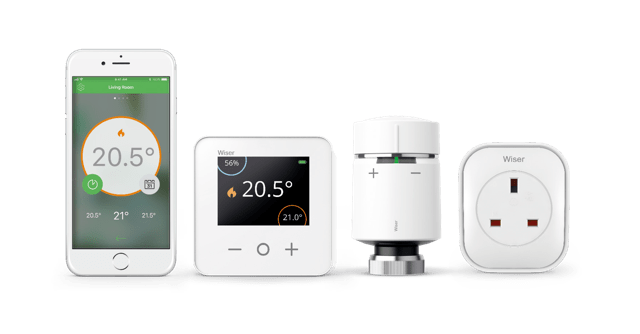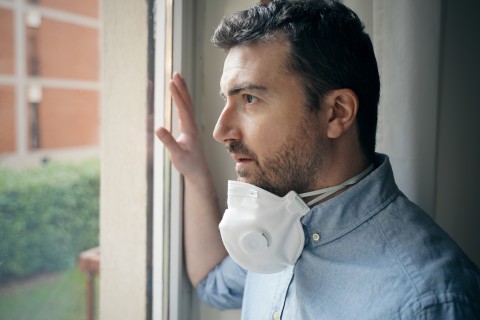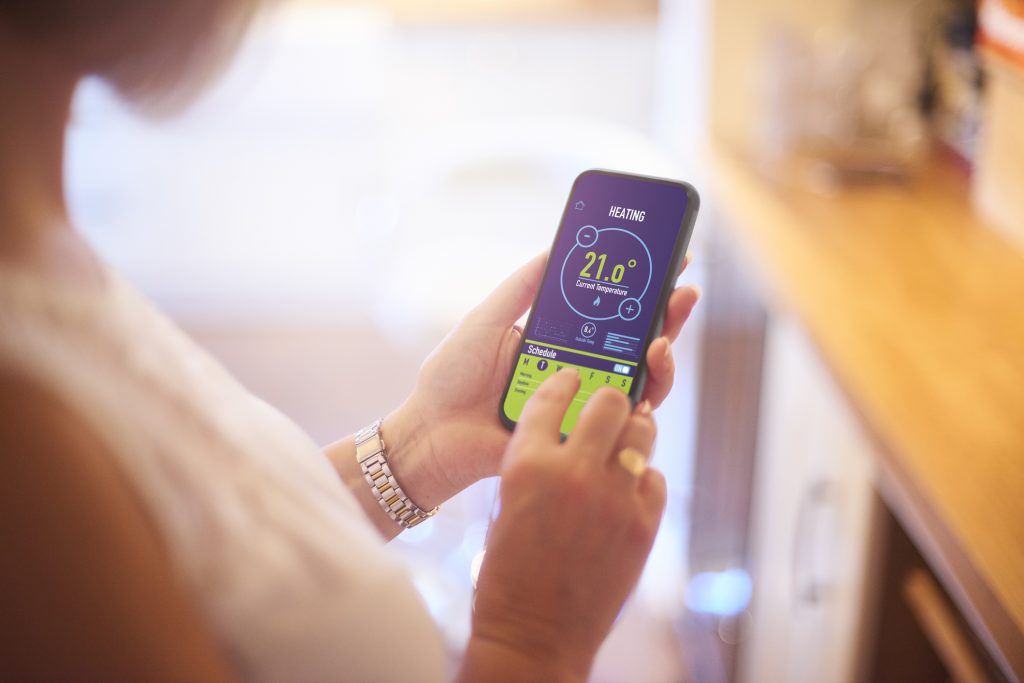

Connected Home Setup
Take the Guesswork out of Your Connected Home Setup with Pace Heating & Plumbing. We’re working to make it as easy as possible to keep your home comfortable, using the latest Smart Home products, systems and services.
Our expert Home Advisor can help you choose the right central heating for your home and family
Our expert Home Advisor can help you choose the right central heating for your home and family
When your central heating stops working it seems quite natural to panic, but stay calm and perform some simple checks before calling in the cavalry. You may also find our tips on common boiler problems useful too.
There are a number of common central heating problems that might cause your radiators to be cold. It may sound obvious, but first check that you have turned your heating on and the room thermostat is calling for heat. Remember, troubleshooting central heating problems can be tricky, so if in doubt call on the skills of a professional.
There are signs to look out for that suggest that all is not well in your central heating system.
There are signs to look out for that suggest that all is not well in your central heating system.
We’re always happy to send one of our expert boiler repair heating engineers to your home. But before we do this checklist may help avoid extra expense and frustration.
Check the thermostat: Check that the thermostat hasn’t been set too low. The boiler will only work if the heating as been set higher than room temperature.
Check the timer: Most timers will have 4 settings, Off, On continuously, on all day (sometimes called once) or timed this may be 2, 3 or more times a day. Make sure that the heating is coming on when you want it to and that you haven’t accidentally set it for 4am instead of 4pm.
Check the pilot light: Check that the pilot light in your gas boiler hasn’t gone out. If it has, there are usually instructions on how to re-light it on the front of the boiler or inside the boiler door.
If these measures don’t solve the problem then Call Pace Heating & Plumbing 0207-183-2727 today to schedule an engineer visit we will be happy to assist.
Noisy boiler: If your boiler makes all sorts of odd banging and bumping noises then there may be a lack of water in the feed and expansion tank. This is usually located in the loft, or if you have a sealed system it may need re-pressurising, the gauge should read 1 bar minimum.
Another issue could be a build-up of sludge and scale in your boiler. Air in the boiler can also cause similar banging noises. Don’t try and tackle these problems yourself, call us on 0207-183-2727 today to schedule an engineer.
Cold radiators upstairs: Cold radiators located in the upstairs section of your home usually mean that the feed and expansion cistern is empty.
Once the cistern has filled you will need to bleed the affected radiators. Check the overflow for the next couple of days to ensure the ball valve is working correctly, if it is dripping Call Pace Heating & Plumbing 0207-183-2727 today to schedule an engineer to check and replace as necessary.
Cold radiators downstairs: If your downstairs radiators are failing to heat up then try turning the upstairs radiators off, there may be an airlock in the system, if this fails there’s a good chance that your pump is broken or on its way out. You’ll need to call us on 0207-183-2727 today to schedule an engineer.
Remember, cold radiators could lead to frozen or burst pipes in winter, so they need to be tackled quickly.
Top of radiator cold: This probably means there’s air in the system. You will need to bleed the radiator so that this trapped air can be released.
Middle of radiator cold: This may mean a build-up of rust or sludge is obstructing the flow of water through the radiator.
Water gurgling: Water gurgling noisily through the central heating system is a pretty clear sign that you have air in the radiators. This problem can be easily resolved by bleeding your radiators.
Build-up of rust and sludge: The method of solving this problem will depend on whether you have an open vented system or not.
Cleaning your heating system can be a big job, if in doubt call us on 0207-183-2727 today to schedule an engineer.
Air locks in the central heating system: In some cases it’s likely there’s air in the system and not just an individual radiator. You can tell when this is happening because your radiators will go cold alternately as air locks move around the heating system. Try bleeding the radiators or call us on 0207-183-2727 today to schedule an engineer.
Close the valve: Radiators heat up in turn, which means those nearest the boiler will often be warmer. By partially closing the lockshield valve on those radiators you can allow more hot water to flow to the ones further away.
Leaking radiators and pipes: When you have one or more leaking radiators, there are some actions you can take before the problem escalates. A pinhole leak on a radiator can be a sign of internal corrosion. This can happen when debris that collect during installation aren’t properly removed (and this can be within weeks of a system being fitted) or because of air being drawn into the system.
To fix the problem, try the following:
Leaking pipes: Leaky pipes are a nuisance, and can grow into bigger problems if left unchecked.
Leaky connection or joint: If water is leaking from a connection or joint then it should be easy to tighten the joint with a spanner or wrench. However if the joint has been soldered you won’t be able to tighten it and the pipe may
Leaking from pipe: If the pipe is leaking from a section which has no joint or connection then the pipe will need replacing. A short-term solution is to tie a rag around the pipe, or use specialist sealant from a DIY store. You may wish to call us on 0207-183-2727 today to schedule an engineer to replace the pipe as it can be a messy and complex job.
Don’t forget: If you have a major problem with your boiler or heating, call Pace Heating & Plumbing; all our engineers are Gas Safe Register. Remember that all boilers and heating systems should be regularly checked and serviced. If you need a one-off repair, you can count on the Pace expert repairs team to get things working again. Call us on 0207-183-2727 today to schedule an engineer.
A boiler that has been professionally sized by a Gas Safe Registered engineer will run more efficiently than an incorrectly sized one
Your circulation pump plays a crucial role in the functioning of your central heating system. If it develops a fault, it’s likely to cause problems with your hot water and heating. In this article, we explain what the circulating pump does and how to recognise problems. We’ll then walk you through our circulation pump troubleshooting checklist.
A circulating pump is a water pump that moves hot water around your heating system. The water travels from your boiler through to the pipes that feed your radiators, towel rails, and hot water cylinder. The water then flows back to the boiler to maintain a constant flow of heated water around your home. Central heating circulating pumps are usually located inside or near your boiler, or in your airing cupboard next to your hot water cylinder.
There are a few tell-tale signs that indicate your circulator pump system isn’t working correctly. You may notice:
These can be caused by problems such as blockages or an airlock in the system which can be fixed.
If your circulator pump keeps running, but it’s not moving water around your system, its shaft or propeller could be stuck.
The solution: Try giving the pump a gentle tap. That may be enough to free up any components that have seized up.
If this doesn’t work, or you find the pump gets stuck regularly, it’s probably time to replace it before it fails altogether.
Call us at Pace if you think you need a replacement pump.
If your pump is noisy, there may be an airlock inside the pump. Airlocks can cause your pump to stop working, but luckily there’s a straightforward fix.
The solution: For a circulating pump that’s outside of your boiler, follow these instructions to remove the airlock:
You will need a flathead screwdriver and a cloth.
If this doesn’t stop the noise, it’s possible a bearing inside the pump has come loose. If this is the case, you will need to replace the circulating pump. If you can still hear a noise, there may be a separate issue with your boiler.
If your heating is warming up slowly, not to its full temperature, or it isn’t heating up at all, the circulating pump may be blocked or it may have stopped working.
Blocked pumps can be the result of a build-up of sludge and metal particles flowing through the central heating system. The dirt can get stuck in major components, like the circulating pump, causing them to fail.
The solution: Call Pace to diagnose the issue. We may need to carry out a suitable system cleanse of the system to clean it out.
If you see water leaking from your circulating pump, it may be caused by the pump working itself loose or a blown seal.
If you need assistance with leaks in the home, Pace 0207-183-2727
the solution: Firstly, tighten up all the joints using an adjustable spanner or wrench.
If it’s still leaking, check all the fittings on the pump. Some parts may have corroded. If this is the case, the pump will need to be replaced.
Finally, check the joint on the pump. If this is where the leak is coming from, the seal on the pump may have blown. In this case, call Pace 0207-183-2727 we can replace the pump.
If you’re having problems with your circulating pump, it’s time to call in the professionals. Call Pace Heating & Plumbing so we can help diagnose and fix the issue quickly.
If you have any questions about heating your home or are looking to upgrade your boiler, Call Pace Heating & Plumbing 0207-183-2727 today to schedule time with one of our Home Advisors. The advisor will assess your home and discuss your needs to find the right solution for you and your family.

This ultimate guide will help to answer any of your questions and provide the information needed to make smart and informed decisions about your home’s central heating equipment

Questions about your Central Heating we’ve got the answers to some of your most commonly asked question about furnace and home heating equipment

With different central heating types selecting the right appliances can be a difficult decision here are a few important things to consider….

The COVID-19 Pandemic has raised a number of questions. The following Q&A link addresses the safety of providing service in our homes…..

Central heating is not working?. Here are some simple tips to keep you warm and help you keep your heating cost down …..


Take the Guesswork out of Your Connected Home Setup with Pace Heating & Plumbing. We’re working to make it as easy as possible to keep your home comfortable, using the latest Smart Home products, systems and services.

We’re Pace Heating & Plumbing If you’re looking for boiler engineers in your area, then you’ve come to the right place. All our engineers are trusted & accredited Gas Safe registered professionals. We only higher the best. Get in touch today!